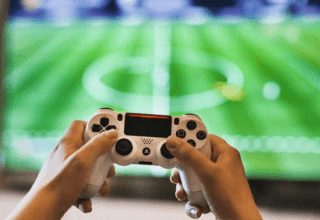SOLACE IN A DIFFERENT KIND OF SUMMER
Summer means freedom and relaxation, right?
It absolutely can be those things, but it can also be a challenging time of year for kids who are removed from a regular routine of school. Add into the mix the evolving COVID-19 pandemic, with kids missing everything from camps to summer activities to sports, and you’ve got a recipe for trouble for at-risk children and their families.
During this period of uncertainty, many mental health experts are encouraging shifting focus from the uncontrollable to the things, or even emotions, that are within our control. That same kind of focus is also helpful to teach children and practice it with them. It’s important to talk about what they do have control over when they wake up, the tasks they take on during the day and how they feel about new ways to interact with their friends and relatives.
While camps and organized sports may be canceled this summer due to concerns about coronavirus, the summer months give us the chance to participate in a variety of outdoor activities from golfing to hiking. These activities may not be among those things that spur loads of anticipation, but scheduling times to do these things can create a routine that can be helpful as young people eventually transition back to some sort of school schedule in the fall.
It’s important to remember that “being bored” is not the worst thing in the world. At a time when we’re facing so much change, so much upheaval and just so much news, it can be good to have time to let your mind rest. Encouraging kids to take time and play with anything from action figures to paper and markers or even sidewalk chalk can promote creativity without demanding extensive productivity.
It can be a natural reaction to shudder at the thought of your kids playing video games for hours, but at a time when kids aren’t hanging out in person, video games are among the few places where young people can safely “hang out” with their friends. What people used to do over the phone, with the cord stretched from the kitchen across the hallway into a bedroom or closet, kids are now doing as they compete on a virtual field. They’re talking about life, chatting about the latest TikToks and dishing over new YouTube channels.
This summer may be the one that families spend the most time together – when we’re eating the most meals at the same time, when we’re not dividing and conquering a long schedule of practices, games and training sessions. We suddenly have time to play cards together, to try recipes together, and to just talk together.
Instead of focusing on what we don’t know, which is easy because it’s a lot, we can really soak in what we do know: We’ve still got each other. The way we see each other may be different (or less or more frequent) from what it was just six months ago, but we’re still together.







